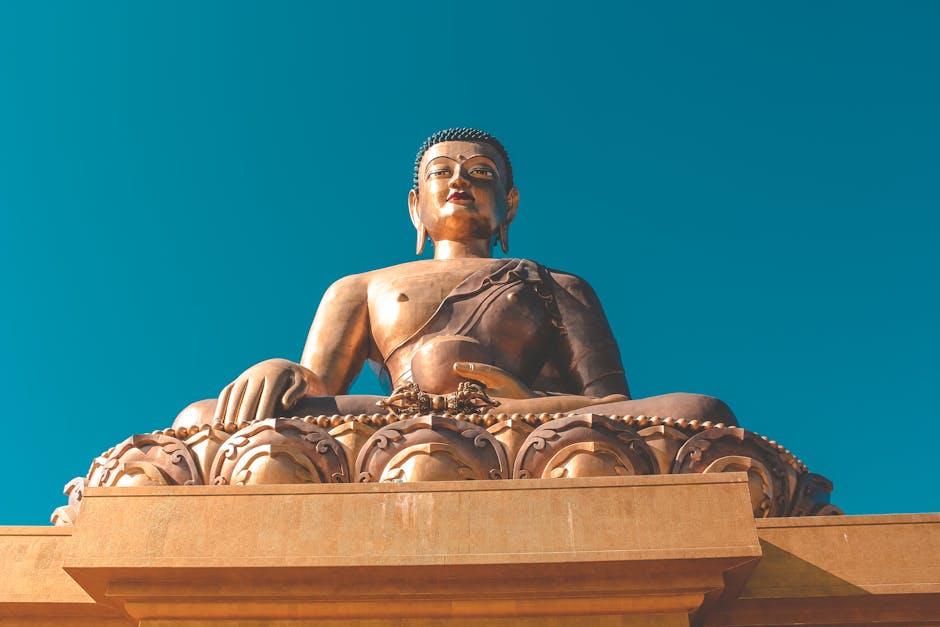


 Bhutan
Bhutan
Bhutan is an incredible travel destination for those looking to explore a unique and beautiful country. Located in the Himalayas, Bhutan is known for its stunning mountain scenery, ancient Buddhist monasteries, and vibrant culture. The country is also home to some of the world’s most spectacular trekking routes, offering visitors the chance to explore remote valleys and high-altitude passes. Bhutan is also renowned for its commitment to environmental conservation and sustainable development, making it a great destination for eco-tourists. With its friendly people, delicious cuisine, and fascinating history, Bhutan is sure to be an unforgettable experience.
Activities: Hiking, Camping, Mountain biking, Safari
Landscapes: Mountains, Rivers, Lakes, Woodlands, Forests
Topics: Nature, Wildlife, History, Festivals, Adventure
Is Bhutan expensive?
Bhutan currency
Nu.Bhutanese ngultrum (BTN)
₹Indian rupee (INR)
Weather in Bhutan
The weather in Bhutan is generally mild and pleasant. Summers are warm and humid, with temperatures ranging from the mid-60s to the mid-80s Fahrenheit (18-30 Celsius). Winters are cool and dry, with temperatures ranging from the mid-30s to the mid-50s Fahrenheit (2-13 Celsius). The monsoon season runs from June to September, bringing heavy rains and occasional flooding. The best time to visit Bhutan is during the spring (March to May) or autumn (September to November) when the weather is mild and sunny.
Is Bhutan safe?
Crime
The crime rate in Bhutan is very low, and the country is considered to be one of the safest places to travel. The most common crimes are petty theft and pickpocketing, so it is important to be aware of your belongings when traveling. Other than that, there are no major safety concerns when traveling in Bhutan.
Travel advisory
3/5Bhutan has a current risk level of 3 (out of 5). We advise: Use some caution when travelling Bhutan.Last updated: Thu Mar 23 2023
Health
Vaccinations
It is recommended that travelers to Bhutan be up-to-date on routine vaccinations, including measles-mumps-rubella (MMR), diphtheria-tetanus-pertussis, varicella (chickenpox), polio, and influenza. Some travelers may also need to receive vaccinations for hepatitis A and B, typhoid, rabies, and Japanese encephalitis.
Altitude Sickness
Travelers to Bhutan should be aware of the risk of altitude sickness. Those who plan to travel to higher altitudes should take precautions such as drinking plenty of fluids and avoiding strenuous activity.
Food and Water Safety
It is important to practice safe food and water precautions when traveling in Bhutan. Travelers should only drink bottled or boiled water and avoid eating raw or undercooked foods.
Insect Protection
Travelers should take measures to protect themselves from insect bites while in Bhutan. This includes using insect repellent, wearing long sleeves and pants, and sleeping under a mosquito net.
Insect repellent
Bhutan customs and etiquette
Be Respectful
Be mindful of the local culture and customs, dress modestly, and be respectful when visiting religious sites.
Be Courteous
Greet people with a bow or a 'Tashi Delek' (hello) and use your right hand when giving or receiving items.
Be Considerate
Avoid loud conversations in public places, do not take photos of people without permission, and do not litter.
Be Responsible
Do not buy or sell endangered species or products made from them, and respect the environment by not leaving any trace of your visit.
TP
Copyright 2023